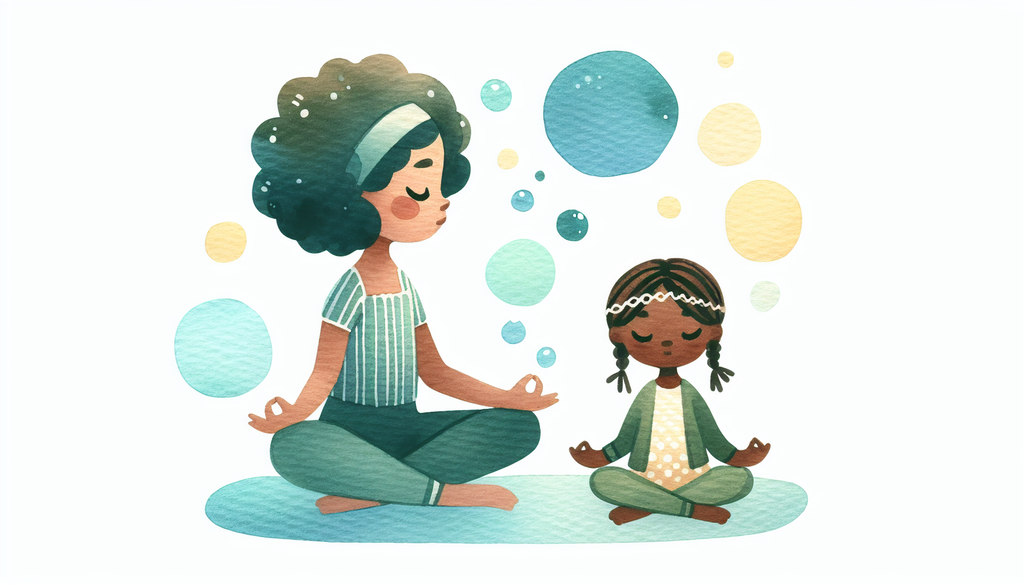Mindfulness and Meditation for Children with Special Needs

Parents and caregivers are always exploring strategies to help their children manage the ups and downs often thrown their way. For children with special needs, coping mechanisms like mindfulness and meditation can provide immense benefits beyond the surface level. Today, we dive into why these practices could be transformative for your child’s well-being and practical tips to get started.
The Benefits of Mindfulness and Meditation for Children with Special Needs
Mindfulness is about being present in the moment, taking note of our feelings, thoughts, and sensations as they occur. For children with special needs, such as ADHD or autism, who often struggle to manage emotions effectively or get easily distracted, mindfulness serves as a practical tool for improving focus and self-regulation.
Meditation, on the other hand, is a focused mindfulness practice that promotes relaxation, calming the mind and alleviating stress. Side effects of some conditions or therapies can bring bouts of anxiety and stress in children with special needs. Regular meditation sessions help them peacefully navigate these episodes (Understanding Your Childs Behavioral Triggers).
With consistent practice, mindfulness and meditation can assist in reducing sensory overload (Holiday Strategies: Reducing Sensory Overload for Special Needs Kids) and improving behavioral reactions. Additionally, these strategies can boost academic performance by honing attention and concentration skills.
Making Mindfulness and Meditation Work for Your Child
Here are some tips to integrate these practices into your child’s routine:
-
Start Slowly and Keep it Short: Begin with short daily sessions of a couple of minutes, gradually extending them as your child gets more comfortable with the practice.
-
Use Guided Practices: There are numerous online resources, including websites and apps offering guided practices specifically for children. These often include visualizations and storytelling, making meditation more receptive for younger minds.
-
Be Consistent: Consistency is integral to cultivating mindfulness and meditation habits. Try to create a schedule that works for your child, whether it’s during their calm-down time before bed or a quiet moment in the morning.
-
Model Mindfulness: Children often learn most effectively by imitation. Let your child see you practicing mindfulness in your daily life, whether it’s during your meditation practice, mindful eating at meal times, or another moment.
-
Make it Fun: Use visuals, songs, or other creative ideas to make mindfulness meditations something the child looks forward to. You could also incorporate elements of sensory play into your sessions to cater to children with diverse needs (Sensory Play: Why It Matters for Special Needs Development).
Remember that every child is different. Some children might respond well to one form of mindfulness or meditation practice, while others might benefit more from another kind. The goal is to customize practices to meet your child’s unique needs.
Harnessing the Power of Mindfulness and Meditation
With all this in mind, introducing mindfulness and meditation into your child’s routine might feel like a gentle but potent strategy to aid their overall development. While this one tool might not solve all challenges, it certainly offers a way to enrich your child’s skills and coping mechanisms.
Remember, navigating the journey of raising a child with special needs is complex, and it’s okay to seek help when needed. Whether it’s connecting with a supportive community (Seeking Support: Finding the Right Community for Special Needs Families) or looking towards professional aid, leveraging resources can make a significant difference.
As you embark on this mindful journey with your child, remain patient, and celebrate the small victories along the way to an enhanced well-being and enriched life experience for your little one. Mindfulness and meditation aren’t just skills but lifelong practices that can guide both children and adults towards an inner sense of calm and enhanced self-awareness.